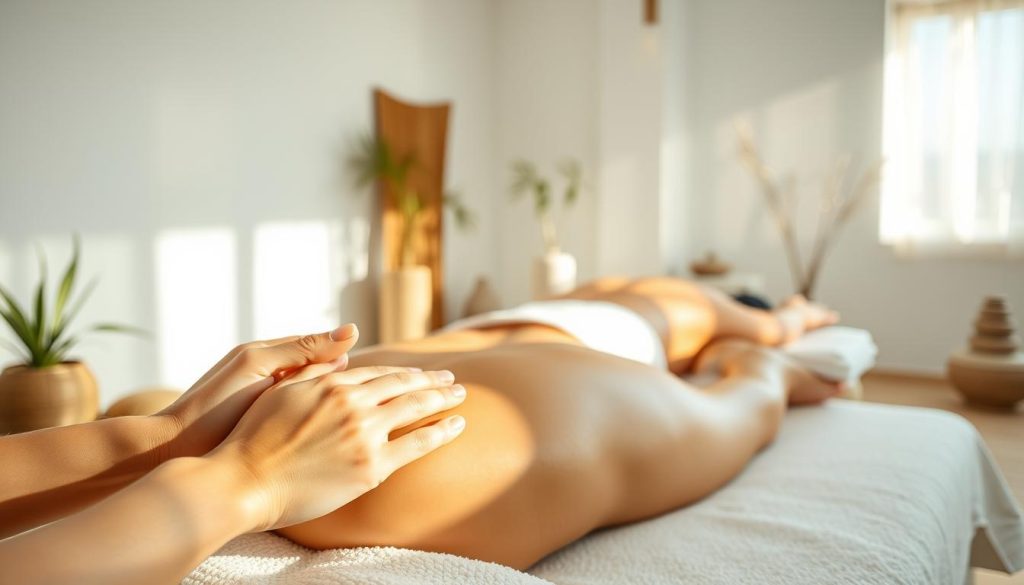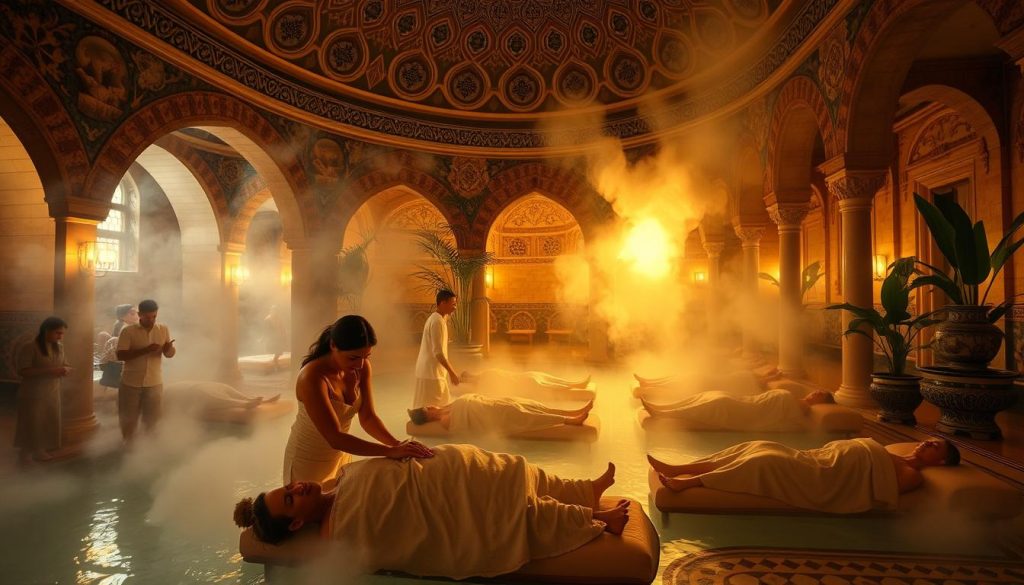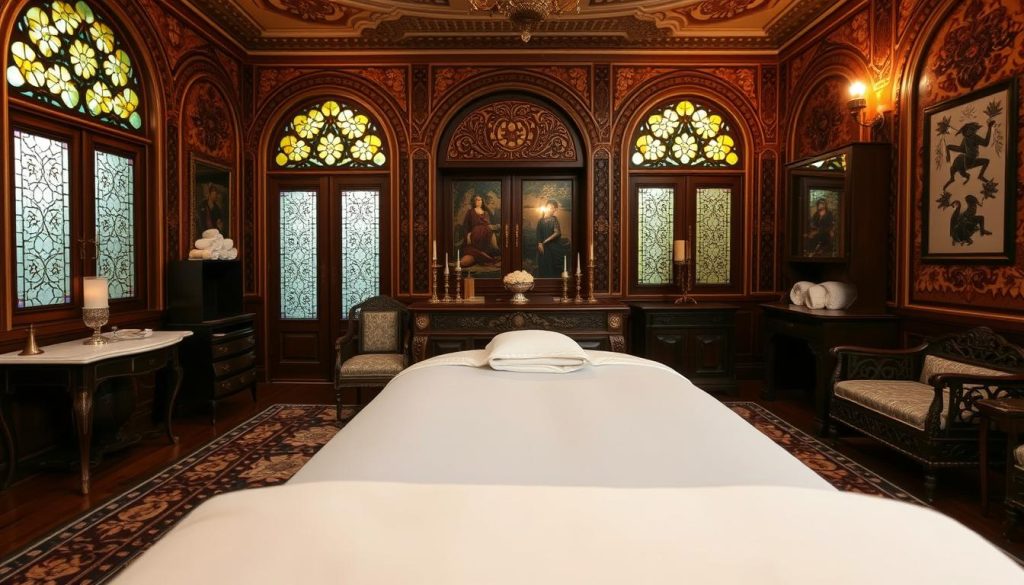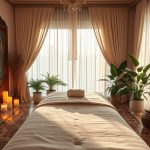Imagine stepping into a centuries-old hammam, where marble walls echo stories of Ottoman sultans and everyday people seeking rejuvenation. This is Istanbul—a city where ancient wellness traditions meet modern luxury. For generations, locals have turned to therapeutic practices to unwind, heal, and reconnect with themselves. Today, that legacy lives on through world-class spas and time-honored rituals you won’t find anywhere else.
Istanbul’s massage culture began in bathhouses that doubled as social hubs during the Ottoman Empire. Places like Kiliç Ali Pasa Hamami, built in the 1570s, still offer authentic experiences blending scrubs, steam, and rhythmic techniques. Now, the city adds international therapies like deep tissue and aromatherapy to its repertoire, creating a unique fusion of East and West. Whether you’re easing muscle tension or chasing pure relaxation, there’s a treatment here for every need.
What makes this destination special? It’s how premier spas honor history while innovating. You might start with a grape-seed body peel in a 16th-century hammam, then enjoy a CBD oil massage overlooking the Bosphorus. This seamless mix of old and new reflects Istanbul’s spirit—timeless yet forward-thinking.
Ready to explore? From sports recovery sessions to aromatic therapies, informed choices ensure you find the perfect match. Let’s uncover how these practices reduce stress, improve sleep, and leave you feeling reborn.
Key Takeaways
- Istanbul blends Ottoman-era hammam rituals with modern international therapies for unique wellness experiences
- Historical sites like Kiliç Ali Pasa Hamami offer authentic treatments dating back to the 16th century
- The city’s strategic location creates a fusion of Eastern and Western massage techniques
- Options range from traditional body scrubs to specialized deep tissue and aromatherapy sessions
- Massages here address both physical needs (muscle relief) and mental benefits (stress reduction)
Experience Istanbul’s Rich Massage Tradition
Walk through arched doorways into spaces where history breathes through every stone. For centuries, Turkish baths have been more than just cleansing spots – they’re living museums of wellness. Locals still gather here to unwind, just as their ancestors did when these structures first rose during the Ottoman Empire.
Where Time Stands Still
Traditional hammams served as neighborhood hubs where people connected over steaming marble slabs. Skilled attendants still use hot water and olive-oil soap to scrub away tensions, following rituals perfected over 500 years. You’ll lie on warm stone as loofahs exfoliate your skin, just like travelers did when silk road merchants needed muscle relief.
Today’s Twist on Timeless Rituals
Modern spas preserve this legacy while adding comforts like private suites and herbal-infused steam rooms. Compare classic and contemporary approaches:
| Features | Traditional Hammams | Modern Spas |
|---|---|---|
| Architecture | 16th-century domed ceilings | Blend Ottoman & modern design |
| Materials | Natural marble & copper bowls | Eco-friendly soaps & towels |
| Social Experience | Communal scrubbing sessions | Optional private treatments |
| Post-Care | Turkish coffee in cooling rooms | Herbal teas with Bosphorus views |
After your massage, sip apple tea while watching sunlight filter through ancient glass windows. This seamless mix of old and new makes Istanbul’s bath culture unforgettable. Whether you choose a historic hammam or luxury spa, you’re participating in a tradition that’s refreshed bodies – and spirits – for generations.
Exploring Classic, Swedish, and Thai Massage Benefits
Imagine a therapy session where every stroke and stretch has centuries of wisdom behind it. Istanbul’s wellness scene shines through two powerful approaches: Swedish relaxation and Thai energy work. These methods offer distinct paths to muscle recovery and holistic balance, each with unique histories worth exploring.

Rhythmic Relief: Swedish Methods
Developed by Dutch physician Johan Georg Mezger, Swedish massage uses gliding strokes with plant-based oils. Therapists apply pressure along muscle fibers to boost blood circulation. This helps flush toxins from soft tissues while easing joint stiffness.
Ancient Alignment: Thai Traditions
Rooted in Buddhist healing practices, Thai massage combines yoga-like stretches with targeted pressure points. Practitioners guide your body through dynamic movements that improve flexibility. Unlike Swedish techniques, this 2,500-year-old method works through clothing to balance energy pathways.
| Technique | Swedish Massage | Thai Massage |
|---|---|---|
| Tools | Essential oils | Body weight & stretches |
| Focus | Muscle relaxation | Energy flow |
| Position | Lying on table | Floor mat movements |
| Outcome | Stress reduction | Improved posture |
Choosing between these massage types depends on your goals. Seek fluid relaxation? Go Swedish. Want active balance? Try Thai. Many Istanbul spas now blend both, letting you experience East-West synergy firsthand.
Types of Massage and Their Effects: The 5 Most Popular Massages in Istanbul
Feel the warmth of 16th-century marble beneath you as skilled hands revive ancient healing traditions. Istanbul’s legendary hammams stand as living monuments to wellness culture, offering distinct approaches to timeless body care. Let’s explore two iconic venues where history whispers through every steam cloud.
Kiliç Ali Pasa Hamami – A Timeless Turkish Experience
Built for an Ottoman admiral in 1580, this hammam delivers authenticity through generations of expertise. Therapists use copper bowls filled with warm water and olive-oil soap, scrubbing away impurities on heated stone slabs. “The rhythmic motions feel like a dance passed down through centuries,” shares regular visitor Emre Çelik.
What makes it unique?
- Original domed architecture with natural light filtering through star-shaped vents
- Communal scrubbing sessions fostering local camaraderie
- Masseuses trained in pressure techniques that boost blood flow
Ayasofya Hürrem Sultan Hamami – Luxury Meets Tradition
Mimar Sinan’s 1556 masterpiece near Hagia Sophia redefines opulence. Separate hours for men and women ensure privacy as therapists apply argan oil wraps and rosewater mists. Unlike traditional setups, this premier wellness destination offers silk robes and gold-leaf teas post-treatment.
| Feature | Kiliç Ali Pasa | Hürrem Sultan |
|---|---|---|
| Atmosphere | Community-focused | VIP privacy |
| Specialty | Historical accuracy | Modern luxuries |
| Post-care | Turkish coffee | Saffron-infused desserts |
Both venues showcase why Istanbul remains unmatched in blending spa traditions with contemporary comforts. Whether you seek social connection or solitary pampering, these living museums of wellness await your discovery.
Global Variations and Unique Spa Treatments
Imagine your skin absorbing healing traditions from five continents without leaving Istanbul. The city’s spas now serve as crossroads where global wellness practices meet Turkish hospitality. Let’s explore how ancient methods from Africa to Asia enhance modern relaxation.

Discovering International Massage Techniques
Your journey might begin with Rungu massage, using smooth wooden tools from West Africa to knead muscles. Or try Laos-style reflexology – gentler than Thai methods but equally effective for joint mobility. Japanese Yumeiho masters will realign your posture through precise pelvic adjustments.
“Shiatsu isn’t just pressure – it’s about restarting your body’s energy flow,” explains therapist Ayşe Demir. Her hands demonstrate on imaginary points as she speaks.
| Technique | Origin | Key Tool | Benefit |
|---|---|---|---|
| Rungu | Africa | Carved bars | Deep tissue relief |
| Laos Reflex | Southeast Asia | Herbal compresses | Improved circulation |
| Yumeiho | Japan | Body alignment | Posture correction |
| Shiatsu | China/Japan | Finger pressure | Energy balance |
From Foam to Aromatherapy: Enhancing Your Relaxation
After exploring global types massage, indulge in sensory upgrades. Volcanic stones from Arizona radiate heat across stiff shoulders. Foam treatments cleanse your skin with olive-oil soap bubbles before kneading begins.
Aromatherapy sessions stand out – therapists blend eucalyptus and bergamot oils while you inhale calming scents. Compare popular add-ons:
| Treatment | Materials | Duration | Best For |
|---|---|---|---|
| Hot Stones | Basalt rocks | 75 mins | Muscle tension |
| Foam Care | Natural soaps | 60 mins | Skin renewal |
| Aromatherapy | Essential oils | 90 mins | Stress relief |
Whether you prefer African-inspired pressure or Japanese precision, Istanbul’s massage preferences cater to all. Skilled therapists adapt each method using local ingredients like Aegean herbs, ensuring every session feels both exotic and familiar.
Conclusion
Discover how centuries of wellness wisdom converge in modern Istanbul. Whether you seek muscle recovery or cultural immersion, the city’s historic hammams and cutting-edge spas offer solutions for every body and budget. From olive-oil scrubs in domed chambers to medical-grade therapies, your journey here bridges ancient rituals with today’s needs.
Choose confidently between marble-clad baths and rooftop lounges overlooking the Bosphorus. Skilled therapists tailor sessions to address specific concerns—stiff joints, stress, or simply the need to disconnect. Even budget-friendly spots maintain Ottoman-era techniques passed down through generations.
You’ll leave with more than relaxed tissues. Each session connects you to a living legacy where wellness means community, history, and renewal. Book your experience now—Istanbul’s healing touch awaits.






